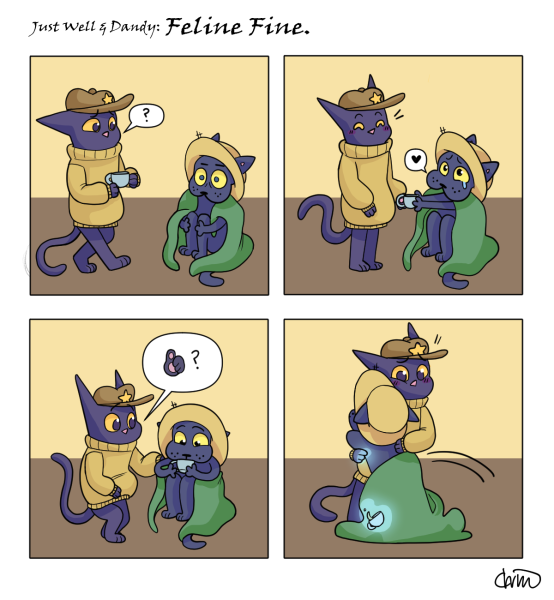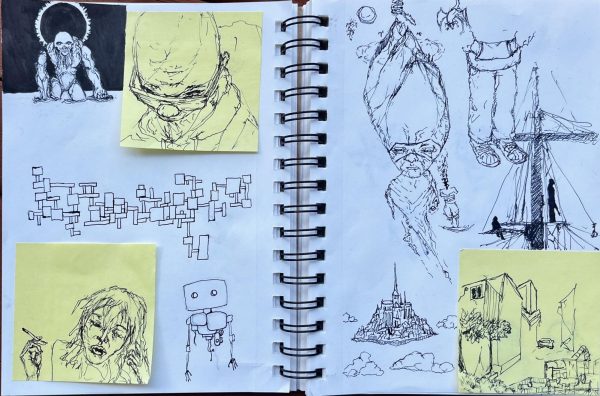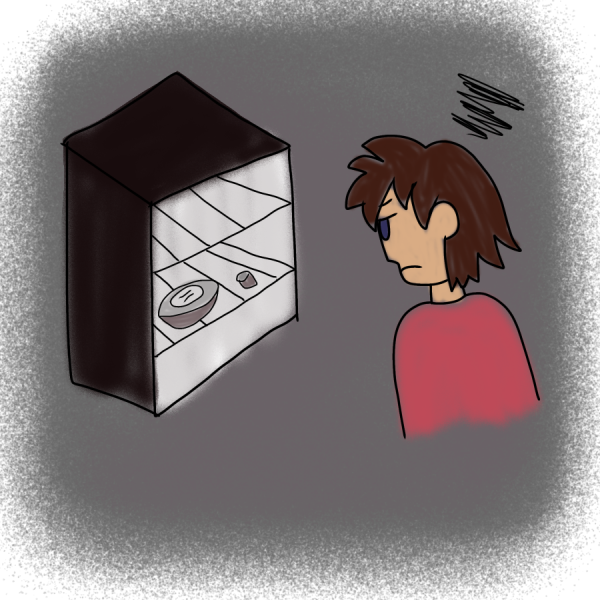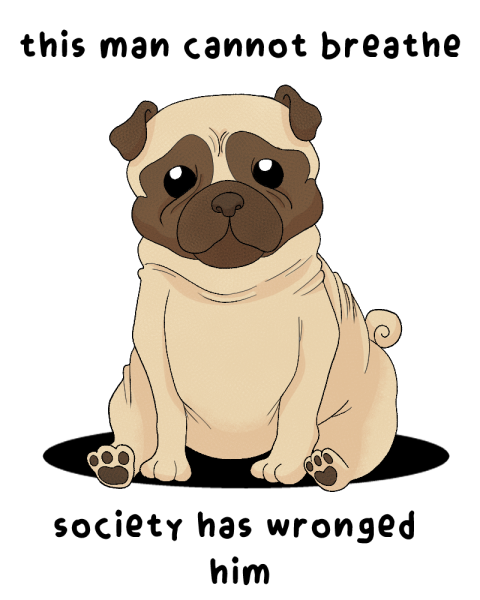Cartoons just not funny anymore
February 9, 2006
In Afghanistan, protestors attacked a NATO base and exchanged fire with police and soldiers. In Iran, they pelted an embassy with stones. They also protested in Pakistan, Turkey, Indonesia, India, Thailand and even New Zealand.
What, you may wonder, are they protesting? The war in Iraq? Iran’s nuclear weapons programs? The World Trade Organization?
Nope. They’re protesting — and dying over — cartoons.
By now, it should come as no surprise that cartoons can get people riled up. Just last year, SpongeBob SquarePants added fuel to the flames of the American culture wars when a religious group claimed that a video featuring him promoted homosexuality to children.
With all due respect to Mr. SquarePants, the satirical political cartoons sparking worldwide protests today are much more serious. Published in European newspapers, they depict the Islamic Prophet Muhammad. In one, he wears a turban fashioned to look like a bomb.
The outrage stems, in part, because Islam is interpreted to forbid any illustration of the Prophet on the grounds that it may lead to idolatry.
While it’s possible to understand the anger fueling the violent protests, they’re hard to justify. Responding to a tasteless picture with a tasteless act of violence only reinforces the baseless stereotype depicted in the cartoons.
Another response has been to sink to the level of the cartoons. One newspaper in Iran is trying to prove its point by offering a contest soliciting the “best” Holocaust cartoon.
It should be noted, however, that tens of thousands of Muslims worldwide have protested nonviolently while demonstrating equal disdain for these drawings.
In addition to providing proof of a deepening rift in which the Islamic world feels (and possibly is) slighted, these protests are also a reminder of the delicate relationship that exists between art, free speech and taste.
As the controversy unfolds, one of the Northern Star’s own cartoonists, Nick Volkert, has been an interested observer. An artist for the Star since 2001 whose drawings have sometimes accompanied this column, Volkert is now also a graduate student, and has seen firsthand the ugliness that can result from cartoons. He once drew one satirizing a DeKalb establishment that had faced repeated allegations of serving alcohol to minors.
“I depicted the characters that were let into the bar as extremely underage, playing off the obvious ridiculousness that no one would ever let anyone that young into their establishment,” Volkert said.
The result? “Angry letters and other potential uglies.”
Volkert provides a unique cartoonist’s perspective on the controversy. While finding the cartoons ultimately in poor taste, he acknowledges that “artistically they are rendered well, despite the volatile content, very ‘New Yorker’-esque [and] artistically acceptable in any American publication. They serve their purpose; they provide an opinion with an image.”
They certainly have provided an opinion with an image. And no matter how ridiculous, tasteless or offensive we find that opinion and image, it’s important that we honor the artist’s freedom to express it.
“Art is a powerful thing, sometimes taken for granted,” Volkert said. “[It] is tricky as is. Images can be taken out of context; personal baggage can be applied to any image, and has been.”
Pulitzer Prize winning cartoonist Tom Toles of the Washington Post would agree. Toles recently came under fire for one of his own cartoons. In trying to argue that too large a burden has been placed on the American military, he depicted the Army as a quadruple amputee in a hospital bed. Naturally, this angered some. Toles’ response in a Washington Post article was, “It is the nature of cartooning that someone can read an analogy a cartoon uses to mean things other than what was intended. The only way to avoid that problem is to draw cartoons that have no impact.”
That’s something Volkert fears, as well. “It’s just sad that one image has the potential to stifle all other subsequent images, even ones that are divorced from addressing this subject matter. It will happen, just watch,” he said.













